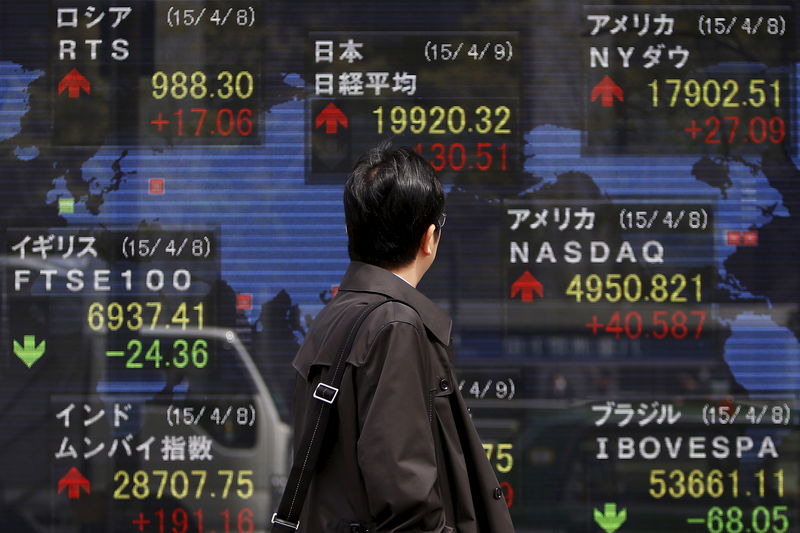By Gina Lee
Investing.com – Asian stocks were mostly up on Monday, with China reporting an easing in July’s factory deflation earlier in the day.
The country reported a better-than-expected consumer price index for July, with increases of 2.7% and 0.6% year-on-year and month-on-month respectively. July’s producer price index also beat the previous month's figure, although it reported a 2.4% decrease year-on-year.
China’s Shanghai Composite was up 0.29%, reversing some earlier losses, by 11:22 PM ET (4:22 AM GMT). The Shenzhen Component was down 0.93%.
But gains were capped by mounting U.S.-China tensions. The U.S. triggered the latest round of tensions after it slapped sanctions on senior Hong Kong and Chinese officials, including Hong Kong’s Chief Executive Carrie Lam, on Friday for their role in the enactment of the city’s national security laws.
The move follows U.S. President Donald Trump’s executive orders banning the WeChat and TikTok apps by September, as well as a recommendation from U.S. regulators that overseas firms listed on U.S. stock exchanges undergo U.S. public audit reviews from 2022, both announced during the previous week.
Investors will be looking at the impact of the rising tensions on the virtual meeting between officials from both countries to discuss trade, scheduled for August 15.
“The bigger question for markets is whether these actions jeopardize the U.S.-China trade talks on August 15 and markets will be looking closely for any Chinese retaliation,” Tapas Strickland, director of markets & economics at National Australia Bank (OTC:NABZY), told Reuters.
“The running assumption in markets has been President Trump needed the phase one deal to succeed, as much as China, this side of the November elections... At the same time President Trump is running a hard China line into the elections,” Strickland added.
Investors are also keeping an eye on the U.S. economic recovery, after Trump kept a promise to take executive action if consensus was not reached for the country’s latest stimulus measures.
“I view this as another step-in negotiations rather than a cessation of negotiations, with a still unknown timeline,” JPMorgan (NYSE:JPM) analyst Andrew Tyler said in a note.
“If we see the White House take the view that they no longer want to negotiate until after the election, then think we’ll see a wave of GDP downgrades followed by lower realized spending and spikes to unemployment in September through year-end.”
Hong Kong’s Hang Seng Index fell 0.37%. South Korea’s KOSPI rose 1.05% and Down Under, the ASX 200 jumped 1.41%.
Japanese markets were closed for a holiday.
